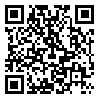Volume 12 -
IJMEHM 2019, 12 - : 497-511 |
Back to browse issues page
Download citation:
BibTeX | RIS | EndNote | Medlars | ProCite | Reference Manager | RefWorks
Send citation to:



BibTeX | RIS | EndNote | Medlars | ProCite | Reference Manager | RefWorks
Send citation to:
Eslami M T, Boosaliki H. A Critique on Stream Claiming Islamic Medicine, based on View of Biomedical Ethics Principles. IJMEHM 2019; 12 :497-511
URL: http://ijme.tums.ac.ir/article-1-6063-en.html
URL: http://ijme.tums.ac.ir/article-1-6063-en.html
1- Assistant Professor, Islamic ethics, Islamic sciences and Culture Faculty, Qom, Iran
Abstract: (3742 Views)
The concept of Islamic medicine, which differs from traditional medicine and even Muslims’ medicine, has become more and more popular in recent years in Iran, especially in religious cities. In the present article, we have addressed the extremist approach of the claimants of Islamic medicine (which considers itself a competitor of modern medicine and traditional medicine).Our theoretical basis for the ethical criticism of this approach has been the principlism of "Beauchamp and Childers". Thereby, we have attempted to challenge the clinical position and medical performances of extremists in the Islamic medicine on the basis of four principles of "justice, autonomy, beneficence, and non-maleficence". Then, we have concluded that the claim of the Islamic medicine cannot, in the present circumstances, satisfy the principle of distributive justice. It also violates patients' autonomy by making unfair judgments and fears about modern medicine. It is very prone to harm clients by refusing scientific evaluation of medicines and therapies and lacking a valid certification system. Accordingly, we particularly challenged the attribution of this process to Islam. This attribution may cause serious damage to the religious beliefs of the clients.
Type of Study: Research |
Subject:
Medical Ethics
Received: 2018/10/24 | Accepted: 2020/01/13 | Published: 2019/03/15
Received: 2018/10/24 | Accepted: 2020/01/13 | Published: 2019/03/15
| Rights and permissions | |
 |
This work is licensed under a Creative Commons Attribution-NonCommercial 4.0 International License. |





